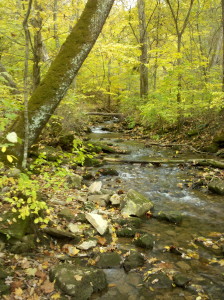If you work in a particular field, you know that it’s all about specialisation. I am a geoarchaeoligist that dabbles in chemistry. Like any good archaeologist, I’ve taken classes in the basics, and I’ve even had the chance to practise a few of the skills in the field. Moreso with being a geologist since I’ve done field work in geology far more often. I could tell you many things you didn’t want to know about beryllium, and even more things about its isotope of 10Be. And, if you thought it couldn’t get any more refined than that, I specialise in meteoric 10Be, not the in-situ type.
This little niche of how meteoric 10Be is applied to studying soil erosion is my comfort zone. However, it has occurred to me that my little world can be applied and is affected by many other areas of study. In order to learn a little more about other areas as they apply to my part of the puzzle, I read books and papers. However, as anyone can tell you, it is often more interesting and fun to talk with a human being, learn hands on, and experience it for yourself.
Every year, the Professional Geologists of Indiana do a field trip that they invite various universities and professional organisations to go on. This past weekend, I was fortunate to join a group of geologists on that trip, and we would look at karst topography and hydrogeology. We basically walked around, popping in and out of caves, pointing out sinkholes, and laughing. This relaxed atmosphere allowed for us to interact, ask questions, get dirty, and really touching the rocks made the subject come alive.

During the single day out, hydrogeologists, karst geologists, geochemists, environmental scientists, and soil scientists in various levels of our careers were able to use this common ground as a way to connect, network, and learn the nuances of each other’s fields. Undergrads and grad students talked about how to survive grad school and commiserated the growing pains of getting out of school. Students and professionals plotted and planned, using each other to bounce ideas off of while they recruited âfresh bloodâ for their associations.
Over all, while field trips are a lot of work to organise and pull together, they are beneficial for all and a lot of fun.